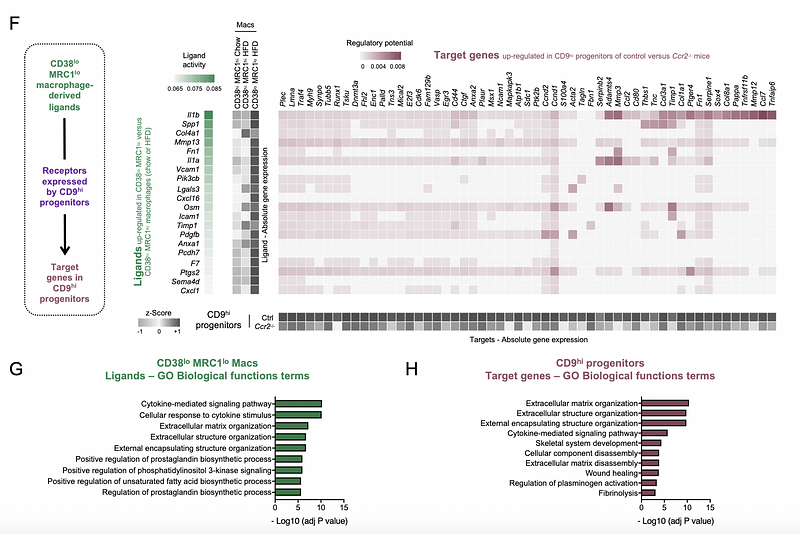Obesity-elicited macrophages shape CD9hi progenitor fate to promote adipose tissue fibrosis and dysfunction

Obesity-elicited macrophages shape CD9hi progenitor fate to promote adipose tissue fibrosis and dysfunction
Askia, H.; Dussaud, S.; Chaves de Oliveira, M.; Oliveira, A.; Poupel, L.; Rebiere, C.; Ouhachi, M.; Manuel, R.; Merabtene, F.; Genser, L.; Aron-Wisnewsky, J.; Moreau, M.; Yvan-Charvet, L.; Ferreira, A.; Huby, T.; Clement, K.; Marcelin, G.; Gautier, E.
AbstractObesity is a life-threatening condition characterized by a maladaptive remodeling of the visceral white adipose tissue (vWAT), including fibrosis, that drives vWAT metabolic alterations. We previously identified CD9hi adipose tissue progenitors as the main drivers of vWAT fibrosis in mice and humans. However, how their functions are controlled, especially by macrophages, remains largely unknown. We found that obesity-elicited monocyte-derived macrophages (obeMac) accumulation was considerably elevated in mice prone to obesity-induced vWAT fibrosis. Limiting obeMac build-up decreased the numbers and fibrogenic activation of CD9hi progenitors, leading to decreased vWAT fibrosis and improved glucose homeostasis. In patients with obesity, we identified macrophages similar to mouse obeMacs that were associated with accumulation of CD9hi progenitors in the vWAT and loss of glycemic control. Finally, intercellular communication analysis identified mediators produced by obeMacs that control the fibrogenic potential of CD9hi progenitors. Together, we uncovered an obeMac-CD9hi progenitors axis controlling vWAT fibrosis and dysfunction.